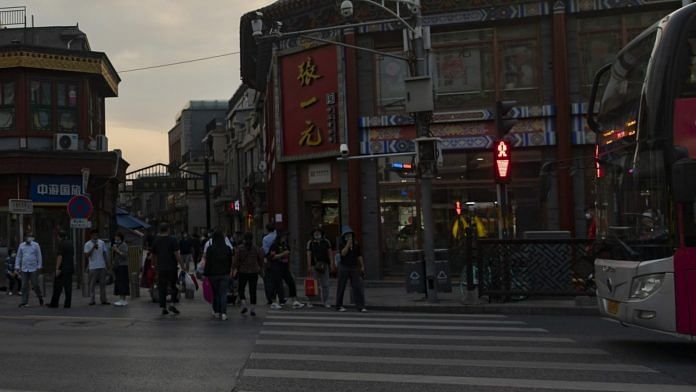The COVID-19 pandemic has sparked an increase in reports of racist incidents around the world. The crisis feeds fear, which in turn is manifesting itself in xenophobia and discrimination.
In the UK, people are asking not to be treated by doctors or nurses of Asian ethnicity. Anti-Asian racism is surging especially in the US, and not for the first time. Islamopohobic sentiments increased in the US after 9/11, and many people fear that with COVID-19 it is those of East-Asian ethnicity who will suffer in the same way. Blaming other countries and races for outbreaks of disease has a long history.
During the pandemic, many black people have faced serious discrimination and racism in Chinese cities. Reports from Guangzhou are saying that immigrants and expats of black ethnicity have been driven out of their houses and forced to self-quarantine. Reports suggest the majority of Africans living in Guangzhou have been tested despite not showing any symptoms – and that even after negative results they have not been let out again. Several African countries have protested the treatment of their citizens in China; in response, China’s Foreign Ministry has said it treats all foreigners equally.
Racism towards black people in China has a long history – and has unfortunately become increasingly common. Professor Guangzhi Huang of the Massachusetts College of Liberal Arts argues that the reasons for this lie in China’s colonial past and the racism suffered by many in the Chinese diaspora – as well as prevailing cultural beliefs.
“The general public believes that racism is a Western problem because they believe that China is a racially monolithic country,” Huang says. “There is a belief that China could never be a racist country.”
The situation has also accelerated Islamophobia in countries like India. India’s religious tensions between Hindu nationalists and Muslims is well documented, but lately these tensions have become a coronavirus issue as well. Hate speech has erupted across social media has erupted; hashtags like “coronajihad” or “bio jihad” have circulated widely online.
#COVID19 does not care who we are, where we live, or what we believe.
Yet the pandemic continues to unleash a tsunami of hate and xenophobia, scapegoating and scare-mongering.
That’s why I’m appealing for an all-out effort to end hate speech globally. pic.twitter.com/ojh957xhQq
— António Guterres (@antonioguterres) May 8, 2020
In Europe, two French doctors were accused of racism after one suggested trialling an existing TB vaccine in Africa as a possible vaccine for COVID-19. Among those who criticised his comments was the the WHO’s Director General ,Tedros Adhanom Ghebreyesus, who said he was “appalled”, and that “at a time when we need solidarity, these kinds of racist remarks do not help”. The doctor has since apologised for his remarks.
Since many people around the globe are now still working from home and staying indoors, internet usage has risen sharply. Although many people can communicate with their friends and relatives online, frustration, anger and anxiety are spreading online as well. These negative feelings can lead easily into hatred towards someone else. Someone different. Someone who is not us, but them.
In March this year, Sauli Niinistö, the President of Finland, urged people to think that “I am not alone in this, we are in this together and we’re supporting each other”. There is no room to separate me from you or us from them. Blaming and undermining other people will feed racism and hate-speech.
We certainly are in this together against the virus, not against each other. Therefore, it is important to fight racism both online and offline – because racism will not solve this crisis, humanity will.
Salaado Qasim, Chairperson, Peace and Well-being organization
This article was originally published in the World Economic Forum.
Also read: Climate change is set to become worst crisis of our time. Covid recovery could change that



